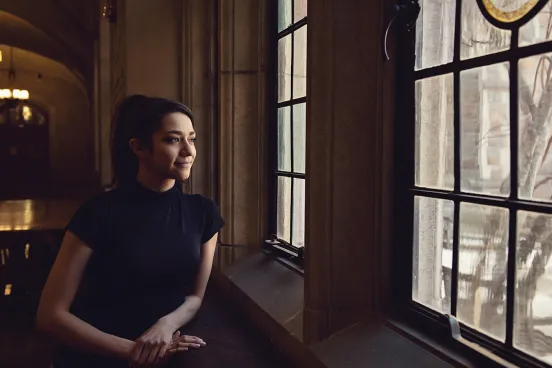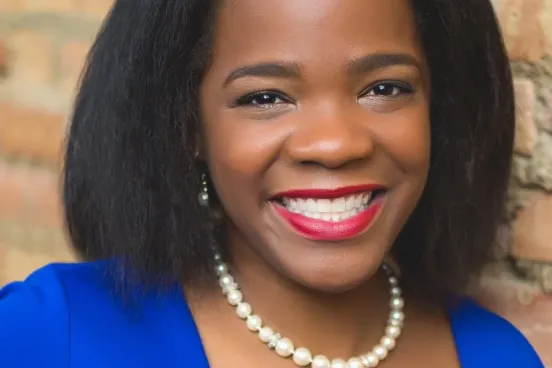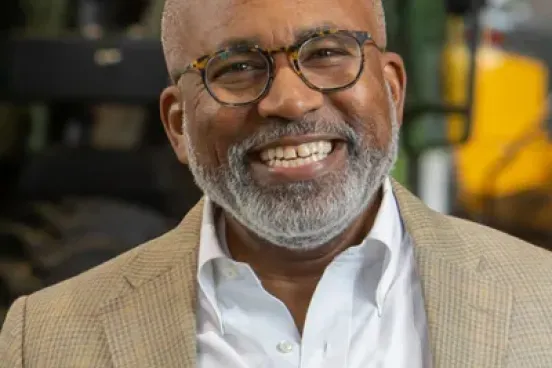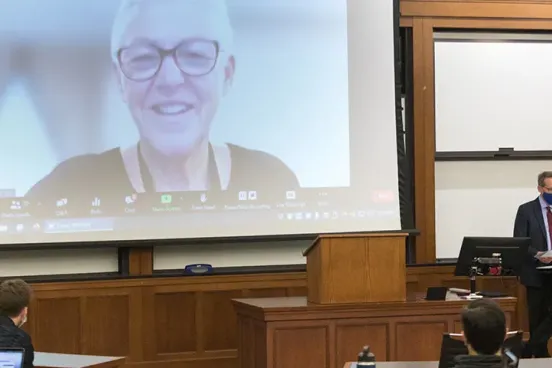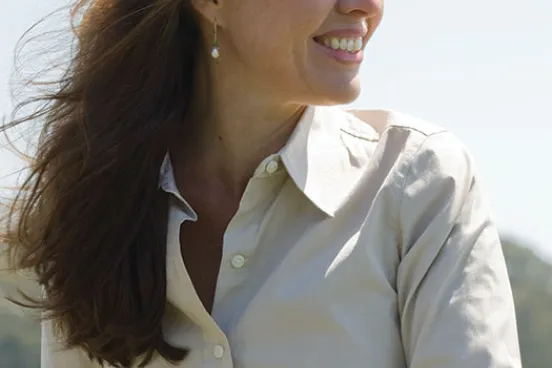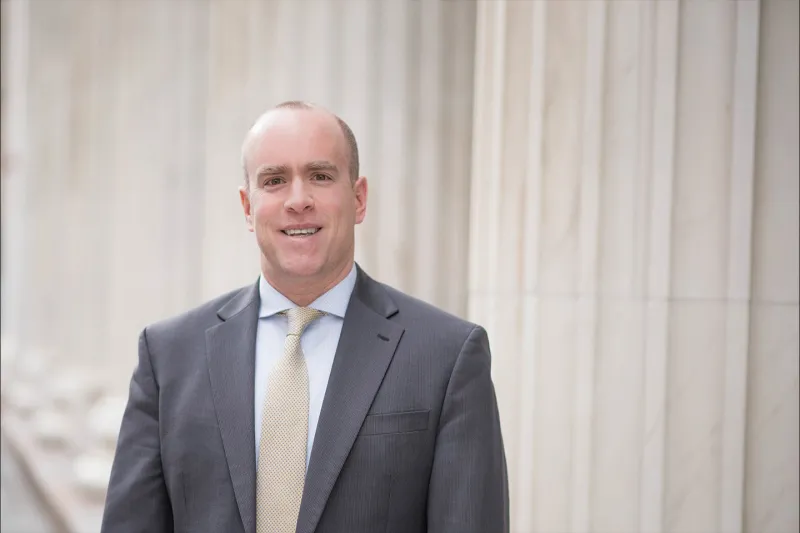
Jordan Lipp, ’02, is a self-described “obsessive skier,” so when he applied to law schools, only those near ski areas made the cut. He chose Michigan Law not only because of its reputation, but also because of its close proximity to Mt. Brighton. “One of my classmates still jokes with me that I’m the only person in the world who chose the University of Michigan for its skiing,” laughs Lipp, who learned to ski at age 2.
Lipp also may be the only summer starter who’s thankful for having graduated early—not because it gave him a jump-start on his legal career, but because it allowed him to experience Denver’s blizzard in March 2003, which buried the city in nearly 32 inches of snow. “Had I not been a summer starter, I would have missed that storm, and I’m very happy that I didn’t,” he says.
Lipp is a managing member at the litigation boutique Childs McCune in Denver, where he specializes in product liability defense work. A quarter of Lipp’s practice, though, is devoted to outdoor recreation and ski law, which involves defending ski resorts, adventure parks, and outdoor recreation companies that have been sued. It’s a niche area, and one he got into by chance.
Lipp—a veteran ski patroller of 25 years, including at Mt. Brighton during law school—had written a backcountry skiing guidebook about the Berthoud Pass region of the Rocky Mountains in 2005. One of the senior partners at Lipp’s previous firm, Davis Graham & Stubbs LLP, knew about the book and offered him related legal work.
“When he got a call about an adventure park that needed representation, he sent the client over to me,” Lipp says. “I already was doing product liability work, so outdoor recreation and ski law was a natural place to focus on growing a business.”
Because skiers understand the inherent risks of the sport, there are relatively few lawsuits against ski resorts, says Lipp. Those that are brought usually involve accidents related to lift operations, which are the bulk of Lipp’s ski-related cases. Where the lawsuits are more frequent, however, is with other outdoor operations, such as those involving zip-lining, mountain coasters, or horseback riding.
“The actual rate of injuries that turn into claims is much higher, and people are much more likely to want to sue in that context,” Lipp says.
One case that stands out for Lipp involved a woman who suffered a traumatic brain injury after falling off the horse she was riding. She sued Lipp’s client—the resort that offered the horseback riding—and the horseback riding company that the resort had contracted with, even though she had signed a release from each outfit.
“There was an indemnification fight between the resort and the horseback riding company that spawned a second set of litigation after the first litigation was over,” Lipp says. “It was such an interesting case because it involved the science behind traumatic brain injuries, as well as indemnification, insurance, releases, and high-dollar exposure.”
Lipp also worked on a Colorado Supreme Court case involving a question of whether avalanches are an inherent risk of skiing under Colorado statute. Lipp—a veteran avalanche safety instructor—wrote the amicus brief for the ski resort trade association, and spent hours poring over avalanche safety books in his office.
“I love skiing, and I want as many people to enjoy what my kids and I have been able to enjoy,” says Lipp. “I like knowing that my work and my advocacy are hopefully protecting this industry that I love.”


